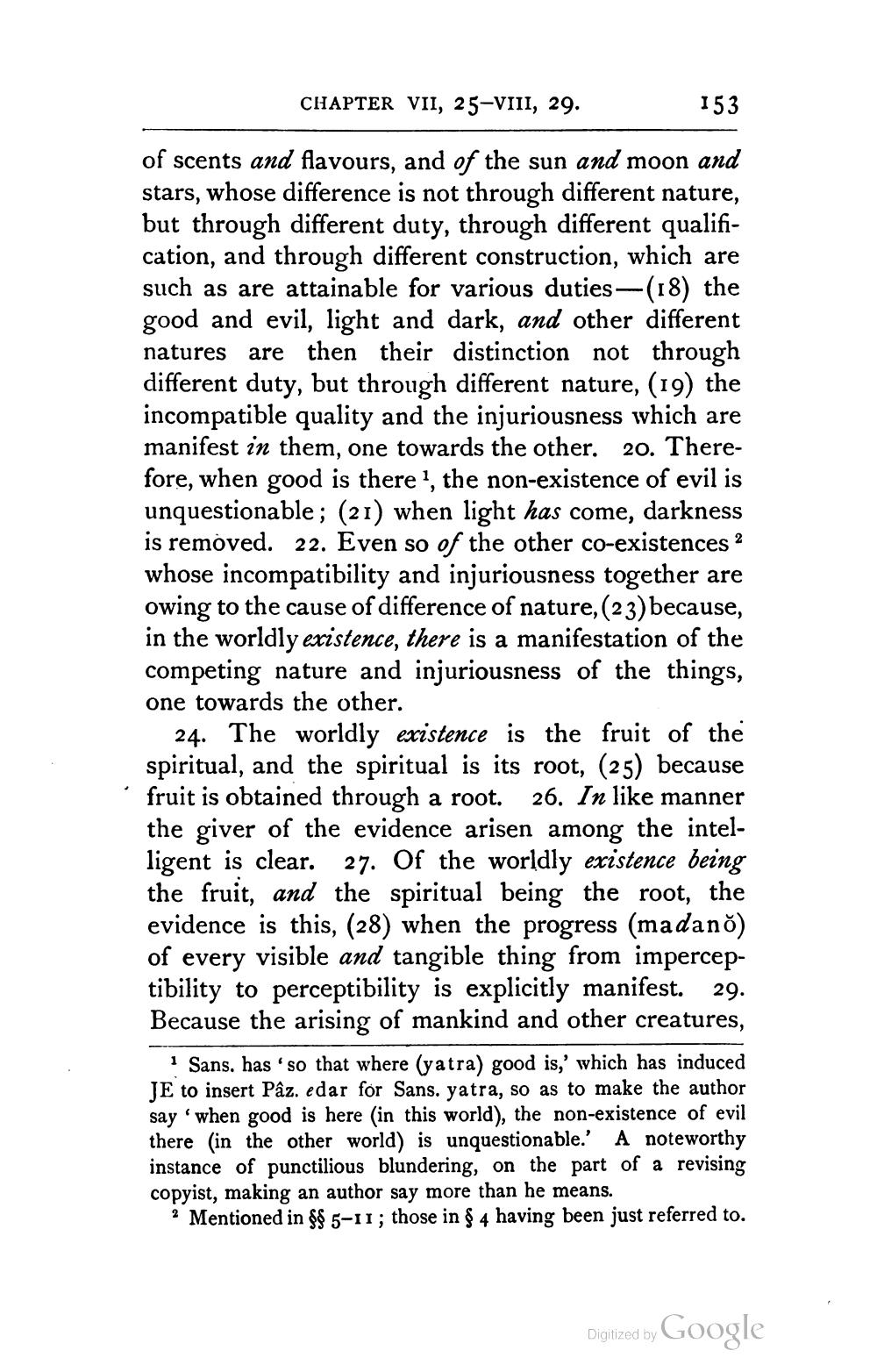________________
CHAPTER VII, 25-VIII, 29.
153
of scents and flavours, and of the sun and moon and stars, whose difference is not through different nature, but through different duty, through different qualification, and through different construction, which are such as are attainable for various duties -(18) the good and evil, light and dark, and other different natures are then their distinction not through different duty, but through different nature, (19) the incompatible quality and the injuriousness which are manifest in them, one towards the other. 20. Therefore, when good is there !, the non-existence of evil is unquestionable ; (21) when light has come, darkness is removed. 22. Even so of the other co-existences 2 whose incompatibility and injuriousness together are owing to the cause of difference of nature,(23) because, in the worldly existence, there is a manifestation of the competing nature and injuriousness of the things, one towards the other.
24. The worldly existence is the fruit of the spiritual, and the spiritual is its root, (25) because fruit is obtained through a root. 26. In like manner the giver of the evidence arisen among the intelligent is clear. 27. Of the worldly existence being the fruit, and the spiritual being the root, the evidence is this, (28) when the progress (madano) of every visible and tangible thing from imperceptibility to perceptibility is explicitly manifest. 29. Because the arising of mankind and other creatures,
Sans, has so that where (yatra) good is,' which has induced JE to insert Pâz. edar for Sans. yatra, so as to make the author say when good is here (in this world), the non-existence of evil there in the other world) is unquestionable. A noteworthy instance of punctilious blundering, on the part of a revising copyist, making an author say more than he means.
? Mentioned in $8 5-11; those in § 4 having been just referred to.
Digitized by Google




